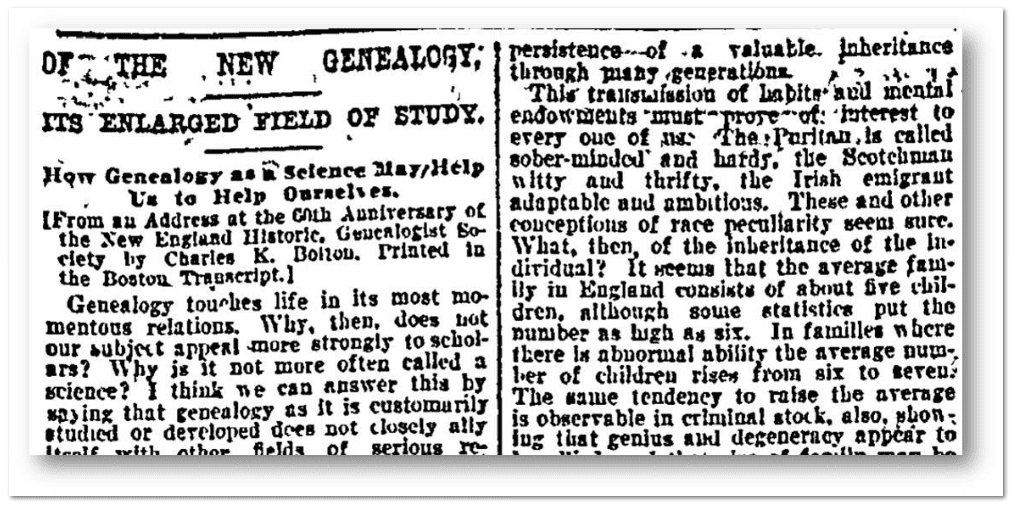More than one hundred years ago the renowned Boston Athenaeum librarian and author Charles Knowles Bolton (1867-1950) counseled genealogists to document their family histories by putting the generations in the context of their times.

At what generation was “white sugar” a staple in the family diet?
What were their political views?
What about the economics of their lives—“Farming out the paupers, paying the minister in produce, co-operation in building and in reaping, the work of the middle man in buying and selling cattle…”?
Today Charles K. Bolton might have asked when the family got a car, a radio, or a television. Who was the first to go to college? What were their occupations? Did they live in multi-generational households or as separate families? Did they serve in the wars? How were they impacted by the hurricane? What color was their hair? What was the color of their eyes?
Birth, marriage, and death records, the census—all of these key genealogy records give the facts as they stood on one day of our ancestors’ lives. Newspapers can provide more, giving the context of every day of their lives: the family details that Bolton was advising family historians to include.
Bolton called on genealogists to put their family history in context, encouraging us to write about our family not as “saints” but as the people that they were and the times that they lived in.
“To know of right living in our ancestors encourages us to higher ideals. To learn of ancestral weakness or disease prepares us to work intelligently to overcome unfortunate inheritances.”
Some of Bolton’s writing style is archaic today, but the core message is still relevant. When you write your family history, tell who each person was and what life was like in their times. Make it seamless and put their lives in context.
We can do this deeper and more meaningful genealogy research and GenealogyBank can help, with more than 1.3 billion online records to provide the family details and context you need.
To read Bolton’s remarks, click the link below:
